Expanding Career Opportunities for Women in Sri Lanka

Ayesha Abeyratne

As a young girl, Ayesha Abeyratne loved to watch the ships going into the Port of Colombo in Sri Lanka. Her passion was mechanical engineering, and she dreamed of working at the port.
But when it was time to choose her course of study at university, she was reluctant to follow her dream. “I was not sure if I should choose a job in chemical engineering instead, because girls get jobs in chemical, but not mechanical,” she said. “They don’t want girls out there in the yard.”
Despite the challenges, Abeyratne enrolled in mechanical engineering after all, and became a trailblazer in the field. In 2018, she was the first woman to be hired into the South Asia Gateway Terminal engineering department, a profession which is traditionally male-dominated. Abeyratne said it was quite evident that her male colleagues were not used to a female mechanical engineer. “There was a bit of culture shock. I had to prove myself as a young professional in a non-conventional role,” she said.
This is the situation for many Sri Lankan women who want to pursue careers, regardless of the field. Despite overall economic growth, poverty reduction, and equal access to education over the past decade, women's participation in Sri Lanka's labor force remains stubbornly low at 34 percent, less than half that of men. Women in the 20 to 40 age group are the most disadvantaged: they secure only 30 percent of jobs in the private sector and are 6.6 times more likely to be unemployed than women in other age groups.
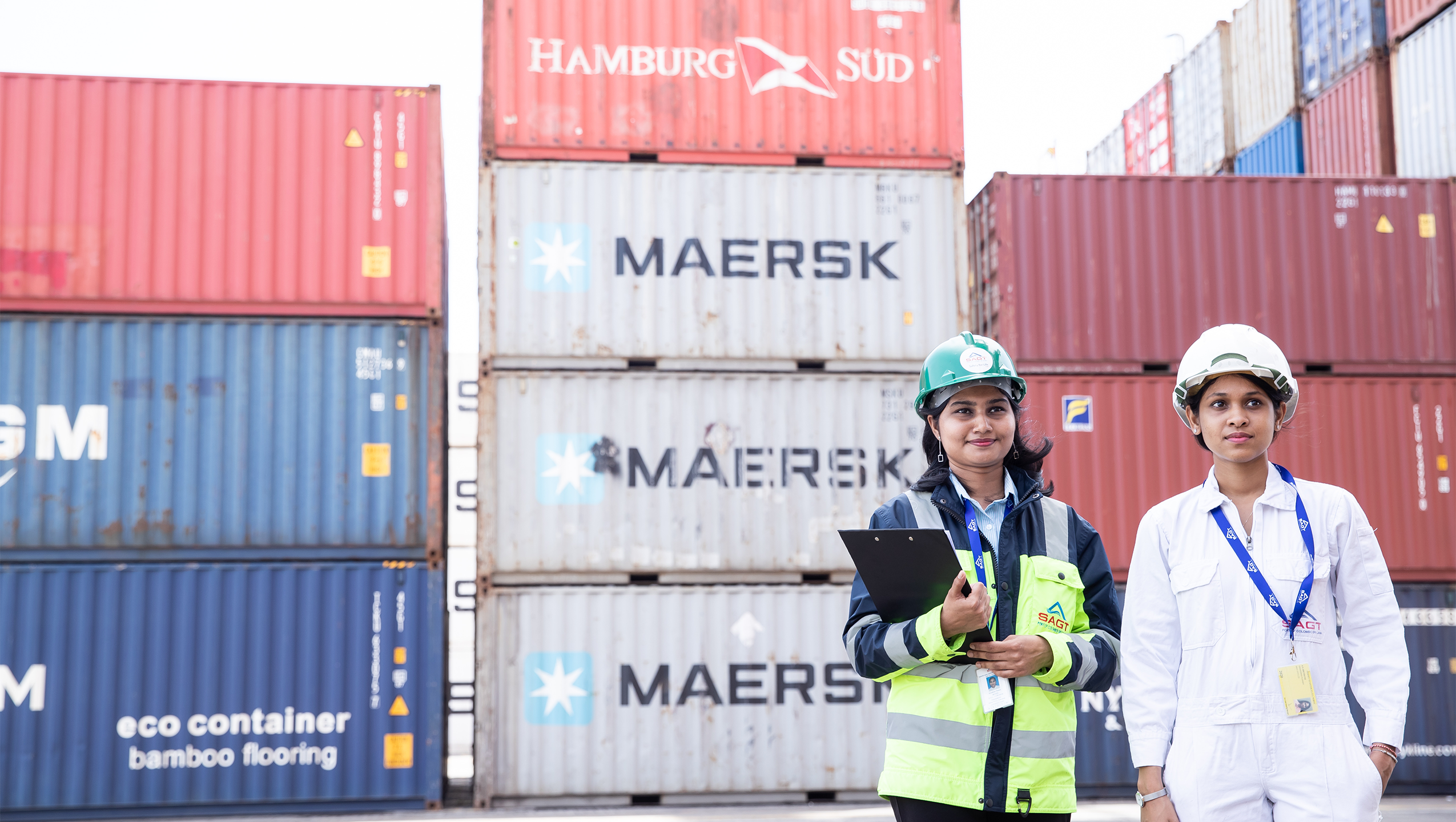
But the benefit of having more women in the workforce is clear cut: the International Monetary Fund (IMF) predicts that Sri Lanka could raise its GDP by as much as 20 percent by closing the gender gap in the workforce.
The “SheWorks Sri Lanka” partnership worked steadily toward this goal. Launched in early 2018 by Women in Work, a partnership between IFC and the Australian government, the program supported 15 of the country’s leading companies in advancing gender equality. The program operated in areas such as garments and apparel, tourism, information technology, banking and finance, and conglomerates. IFC provided technical guidance and best practice examples, while also creating a forum for companies to share their experiences and challenges.
“The business case is clear: investing in gender equality and diversity pays off,” said David Holly, Australian High Commissioner to Sri Lanka.
Getting from “why” to “how”
In just two years, the 15 companies in “SheWorks Sri Lanka” implemented 97 gender-smart actions focused on increasing women's business leadership, ensuring recruitment and retention of female talent, exploring employer-supported childcare, promoting anti-sexual harassment mechanisms, and supporting women in the supply chain. The partnership has led to a 12 percent increase in the number of women employed by all companies, equating to over 12,000 more women in Sri Lanka’s workforce.
Sakunthala Deshani Gunesekara
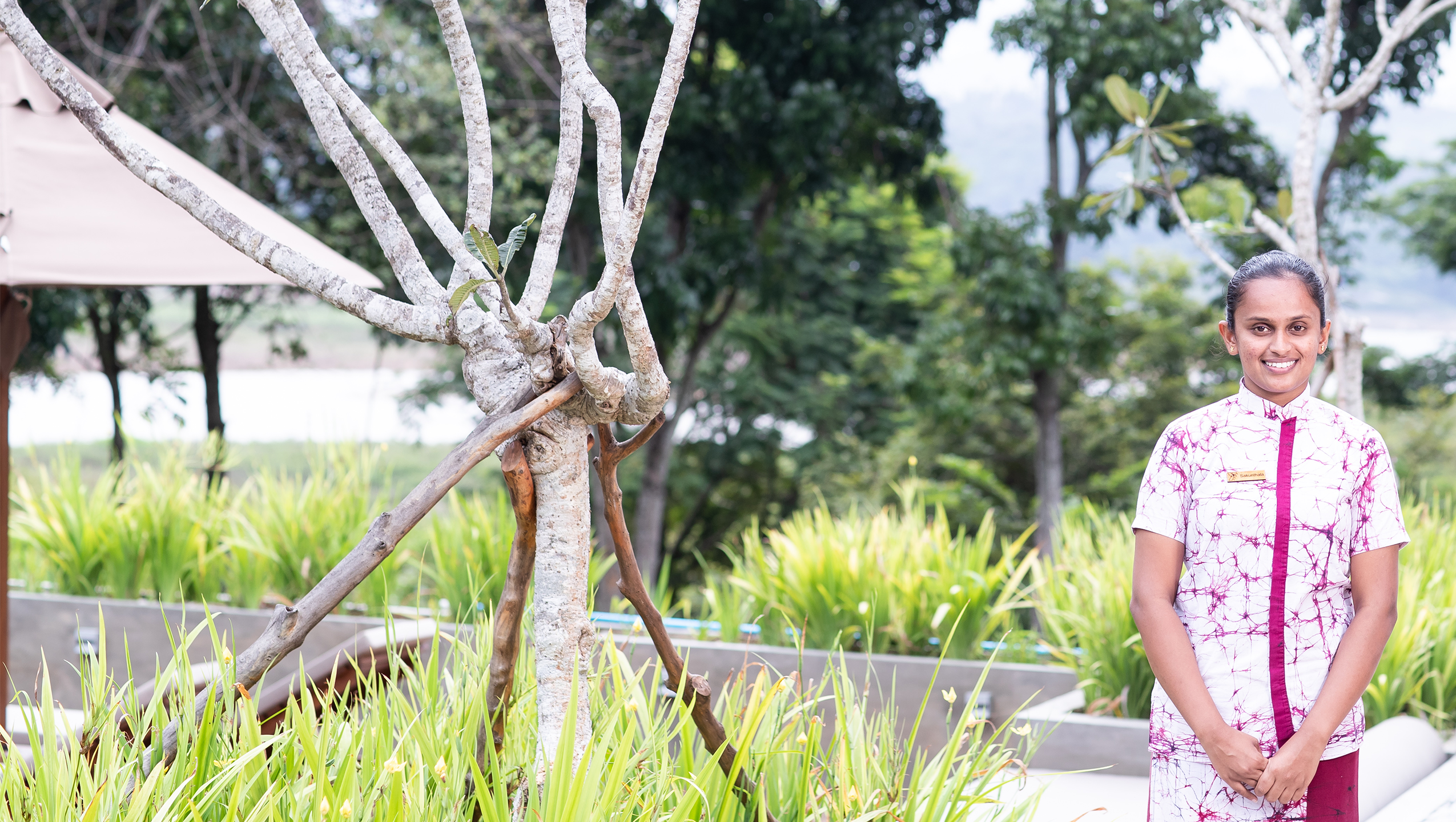
Sakunthala Deshani Gunesekara is one of those women. Three years ago, Gunesekara never thought she would be working as an assistant butler in a luxury hotel in Sri Lanka.
Gunesekara’s mother had been reluctant for her only daughter to join the hotel industry because the perception in her village was that hospitality was not a “suitable” industry for women. That’s a widely held notion that keeps women away from an industry that was Sri Lanka’s third largest foreign exchange earner before the impact of COVID-19.
But Gunesekara was committed to the idea, so she signed up for a youth development program run by Jetwing, one of Sri Lanka’s largest privately-owned resort and hotel brands. She became one of 10 assistant butlers at the Jetwing Kandy Gallery hotel – a profession traditionally viewed as suitable only for men.

Thilini Gunasekara
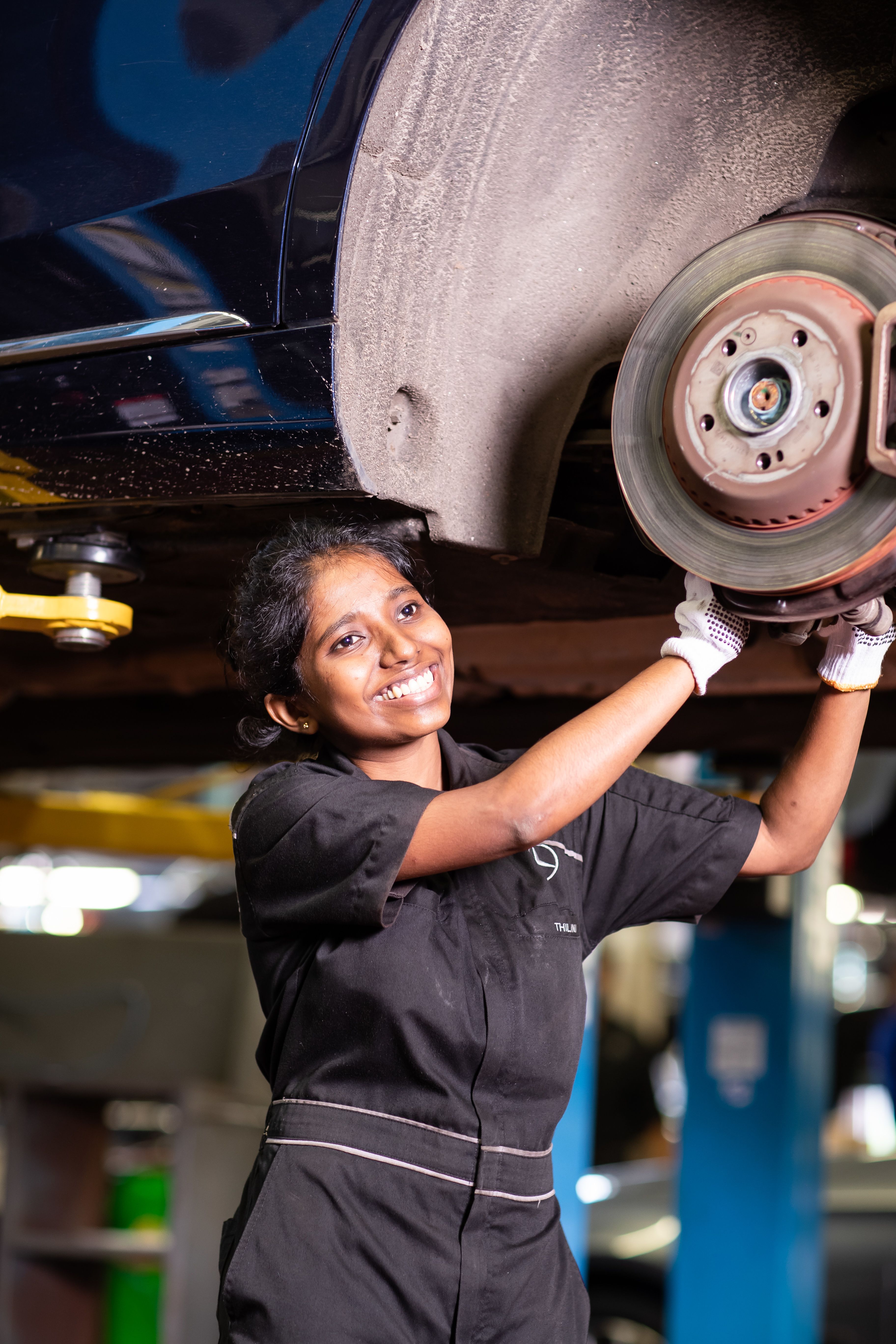
Just like Sakunthala Gunesekara, Thilini Gunasekara too joined an industry—automobile repair—which has not traditionally included women. “My father owned an automobile repair shop. So I knew my way around a car as I grew up in the garage since I was a little girl,” she said. She graduated last year from a training program and is now working for the Mercedes-Benz Service Center in Sri Lanka’s capital. Though she acknowledges that her male colleagues are not used to working around women, she has seen them adapt to having female coworkers.
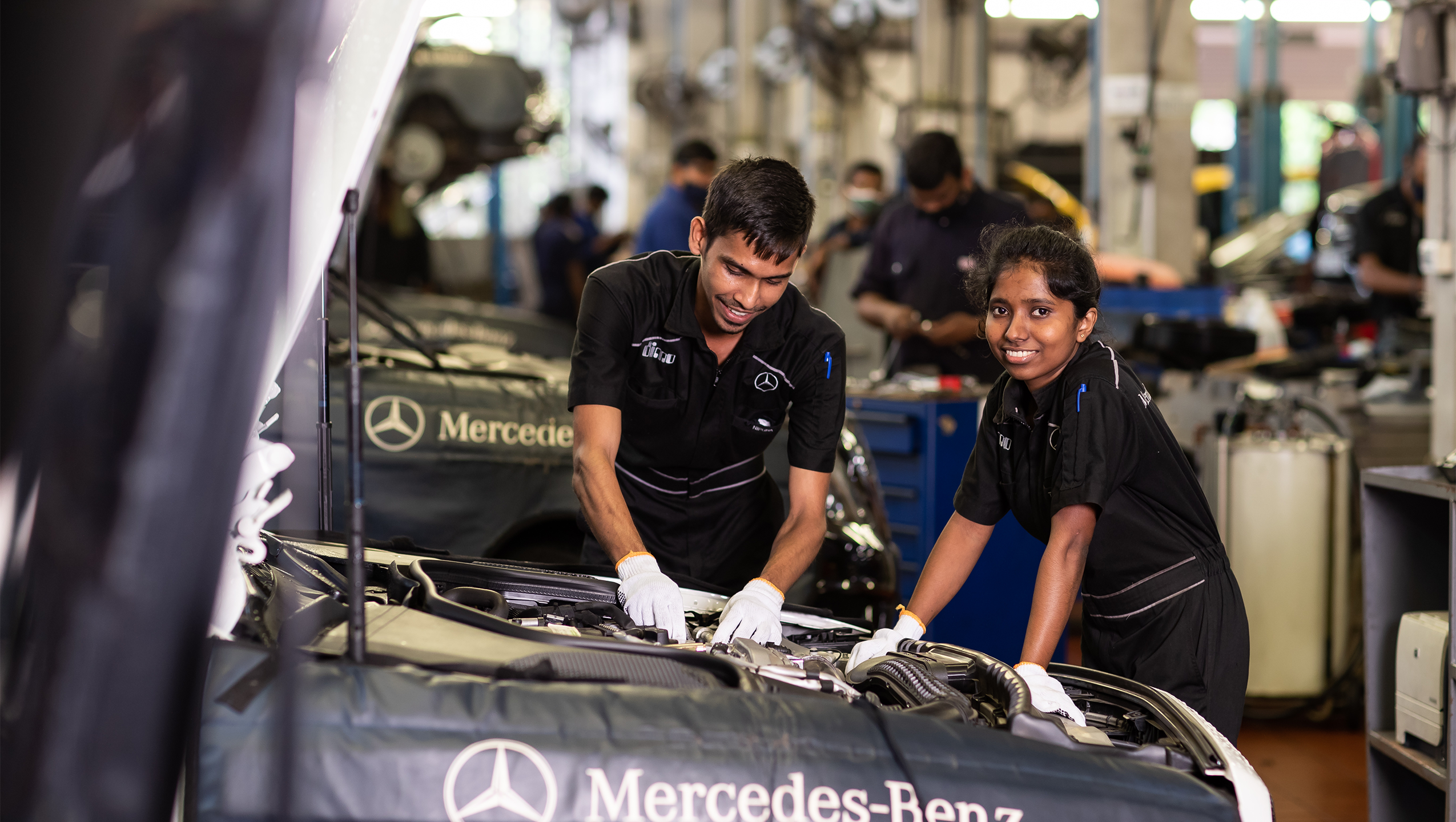
Lasanthi Madagama
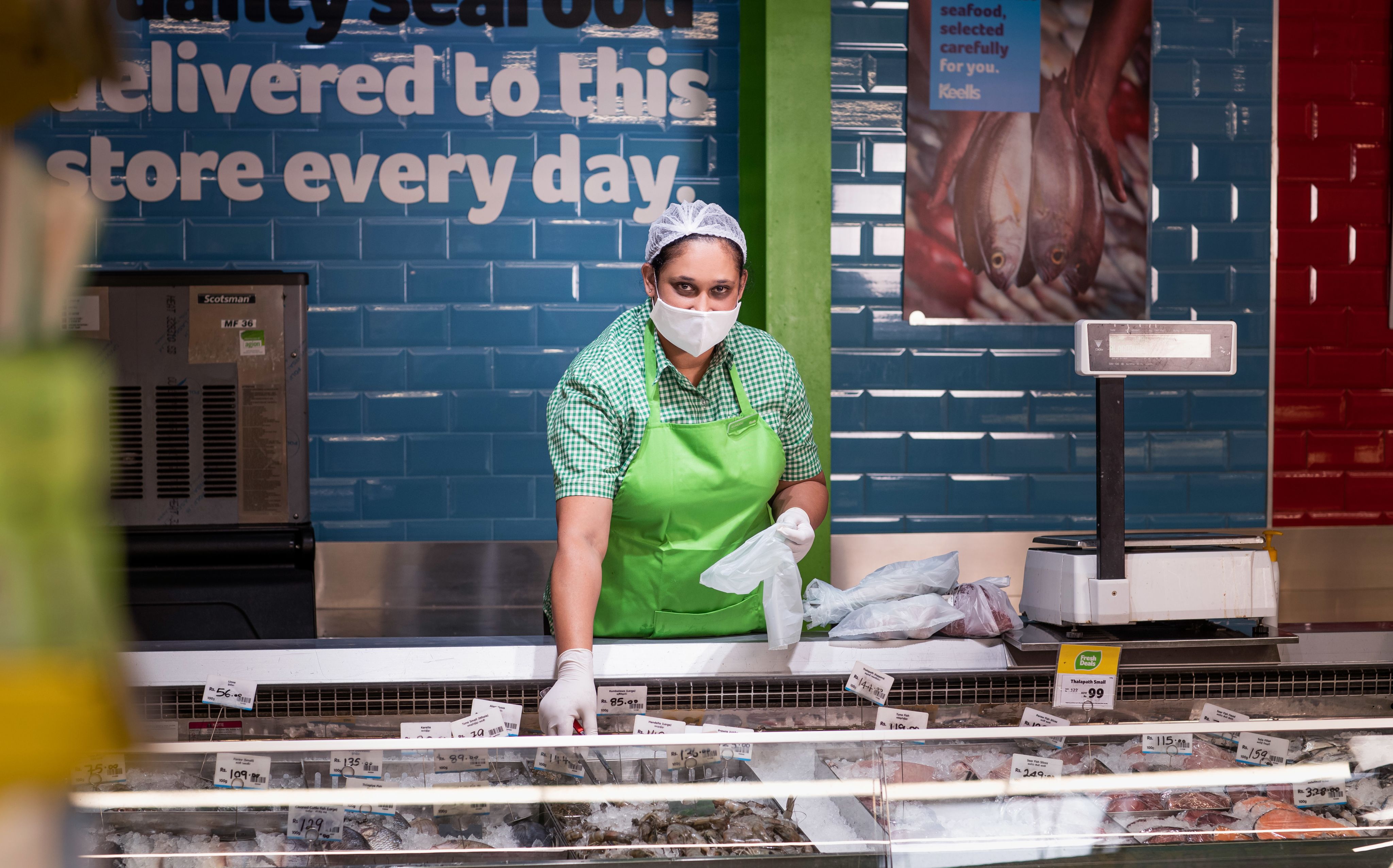
Lasanthi Madagama, a single mother, also overcame the challenge of working in a male dominated environment. In 2020, Madagama rejoined Keells Supermarkets, one of Sri Lanka’s largest supermarket chains owned by John Keells Holdings (JKH), after a nine-year career in customer service that she interrupted to care for her son. Her new assignment was at the meat counter, a male-dominated area. Managers soon nominated her to participate in the Keells career acceleration program, and within three months, she was promoted as the meat counter supervisor. She was the first female meat counter supervisor in the country, and since her appointment, more women have been assigned to similar jobs across the chain.
Keells recognized it was attracting a low number of women applicants for its supermarkets, and created a plan to change the status quo. “What we understood was that the society perceived women working in supermarkets were less worthy of marriage and that only men did supermarket jobs, especially in places like the meat counter,” says Ashan Ransilige, Vice President JKH – Head of HR Retail sector. To challenge perceptions, the company ran campaigns featuring women front and center.
SheWorks, which has supported country-wide initiatives to encourage women’s participation in the labor force, also encourages women to become board members and directors. Such programs have led to a one-third increase in the share of women board directors. As a result, the share of women on boards of companies listed on the Colombo Stock Exchange went up from 8.2 to 9.5 percent within two years, surpassing the South Asian average of 7.8 percent.

Promising Gender Shifts
The partnership also recognizes that there are many factors that influence women’s decision to join the workforce in Sri Lanka. Policies around flexible work, respectful workplaces, safe transportation, and technical and soft skills training also help encourage labor force participation. Employer-supported childcare centers are necessary so that more working parents can keep their jobs – since care responsibilities are one of the top three reasons for both women and men leaving the workforce. Policies on anti-sexual harassment and equal employment opportunities help promote respectful workplaces where employees feel valued.
These actions have yielded results. Standard Chartered Bank achieved 50:50 gender equality in the workforce and obtained the second level of the only global standard for gender equality in the workplace, Economic Dividends for Gender Equality (EDGE). Ceylon Biscuits Limited, AIA Insurance, MAS Holdings, and John Keells Holdings all set up childcare centers for their employees, and are reaping the benefits of more women returning from maternity leave and fewer parents resigning or taking time off to care for children.
The success of "SheWorks Sri Lanka" became a catalyst for an even bigger program: “Together We Can,” a learning series that brought together over 40 Sri Lankan businesses in July 2021 to help close gender gaps in employment.
Abeyratne, the mechanical engineer at the Port of Colombo, has advice for other young women like her, who seek out non-traditional career fields. “Don’t give up on your dreams. You will get a job when you graduate and there is a place for you in the workplace.”
Published in March 2022
With over 50 years of operations in Sri Lanka, IFC has played a significant role in the country’s growth story through support for small businesses, tourism, women, including women entrepreneurs, infrastructure, trade finance and agribusiness. IFC has invested over $1.9 billion across sectors including infrastructure, telecom, tourism, energy, health, and have also provided cutting-edge solutions and expertise to our diverse clients across the country. IFC continues to play a strong countercyclical role in Sri Lanka, providing much-needed long-term capital and trade financing to the country’s private sector.
